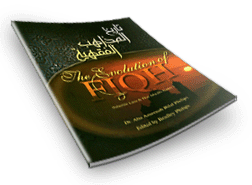FatimaAsSideqah
Little Aminah
- Messages
- 3,482
- Reaction score
- 384
- Gender
- Female
- Religion
- Islam
As Salaam Alaykum Wa Rahmatullahi Wa Barakatuhu

By Dr Abu ameenah Bilal Philips. The origin of Islamic law and its evolution and the four schools of law (math-habs) are discussed in this work along with the reasons for differences among them. This is probably Bilal Philips best-selling work on the various schools of thought in Islam, including detailed facts, insight, and commentary on the four major madhabs as well as other, less-known madhabs in Islam. Includes mini-biographies on various eminent Islamic scholars the Evolution of Fiqh (Islamic Law & the Madh-habs), the author very clearly presents a brief overview of the historical development of Islamic law and its schools (the Madh-Nabs). The book identifies the main reason for the appearance of the Madh-habs and the factors leading to differences among them. For those to whom the Madh-habs have been a mystery, this aspect of the book will he extremely enlightening. Although the author sheds light on both the positive and negative roles of the Madh-habs in the past, the main message of the book is call to the understanding the differences (with an aim to remove them where possible)
Read More... at this link:
http://kalamullah.com/Books/The Evolution of Fiqh.pdf
I've read all of this book. Good book! I'm recommended is that all of you should read this book.
Allah Hafiz
Sister Fatima

By Dr Abu ameenah Bilal Philips. The origin of Islamic law and its evolution and the four schools of law (math-habs) are discussed in this work along with the reasons for differences among them. This is probably Bilal Philips best-selling work on the various schools of thought in Islam, including detailed facts, insight, and commentary on the four major madhabs as well as other, less-known madhabs in Islam. Includes mini-biographies on various eminent Islamic scholars the Evolution of Fiqh (Islamic Law & the Madh-habs), the author very clearly presents a brief overview of the historical development of Islamic law and its schools (the Madh-Nabs). The book identifies the main reason for the appearance of the Madh-habs and the factors leading to differences among them. For those to whom the Madh-habs have been a mystery, this aspect of the book will he extremely enlightening. Although the author sheds light on both the positive and negative roles of the Madh-habs in the past, the main message of the book is call to the understanding the differences (with an aim to remove them where possible)
Read More... at this link:
http://kalamullah.com/Books/The Evolution of Fiqh.pdf
I've read all of this book. Good book! I'm recommended is that all of you should read this book.
Allah Hafiz
Sister Fatima
